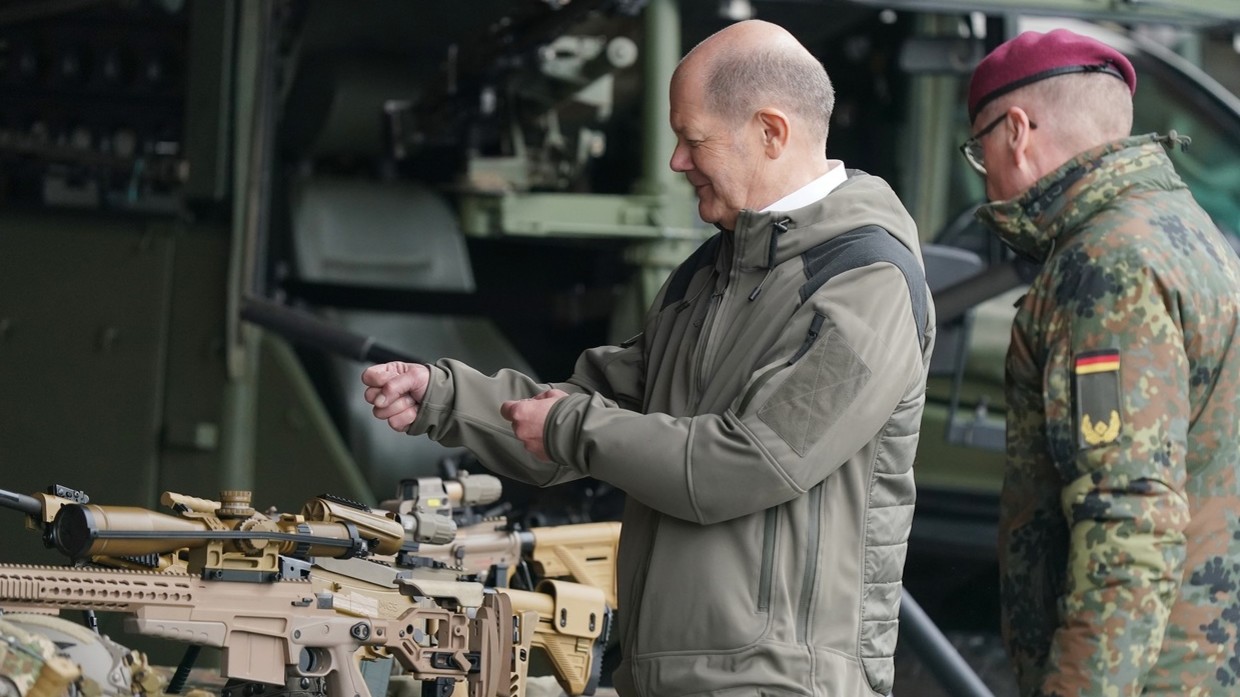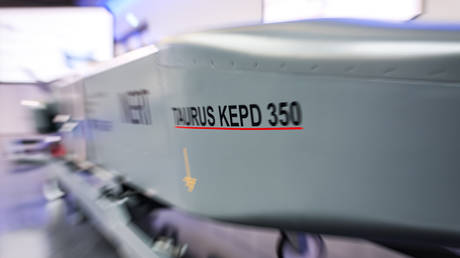German Chancellor Olaf Scholz will hopefully have enough resolve to withstand the “immense pressure” from pro-Ukrainian hawks, Hungarian Foreign Minister Peter Szijjarto has told Russian media.
The head of Germany’s government is being pushed hard to send more weapons to Kiev, the senior diplomat said in an interview with RIA Novosti. He was reacting to fallout from the leaked recording of top German military officials discussing how to help Kiev use the weapons without implicating Berlin.
The leak was published last Friday, after Russian intelligence services allegedly intercepted communications between Luftwaffe Commander Ingo Gerhartz, his head of operations and training Frank Grafe, and two other officers.
They appeared to be preparing a case for Defense Minister Boris Pistorius to present to Scholz on why Germany should provide long-range missiles to Ukraine, like the UK and France have. The Chancellor is skeptical of the proposal, and has said that he would not allow German troops to be directly involved in the Ukraine conflict. The debate focused on how the Bundeswehr could obfuscate its role by using various proxies.
”I believe what the chancellor says is more important that what some military officials say,” Szijjarto said on the apparent rift in the German leadership.
“I believe Chancellor Scholz acted very responsibly in this case, making it clear that Germany shall not supply any Taurus missiles to Ukraine,” he added. “I consider this behavior sensible.”
The Hungarian government has been critical of the Western response to the Ukraine crisis. Budapest has argued that arming Kiev in the hopes that it will defeat Moscow isn’t realistic, and contended that the punitive economic sanctions which the US and its allies have used against Russia have backfired.
The German government has tried to downplay the leak by accusing Russia of “disinformation hybrid warfare” against Ukraine and its backers. Nevertheless, Pistorius has acknowledged that the recording was authentic. Moscow has claimed that the tape served as evidence that Berlin was preparing for a war against Russia.
The leak came days after French President Emmanuel Macron declared himself open to the idea that some NATO members may eventually deploy their own troops to Ukraine. The proposal was largely rejected by the other member states as well as the leadership of the US-led military block, including Hungary. Szijjarto saw the adverse reaction to Macon's comments as encouraging, since such a deployment would have brought the world closer to World War III.


